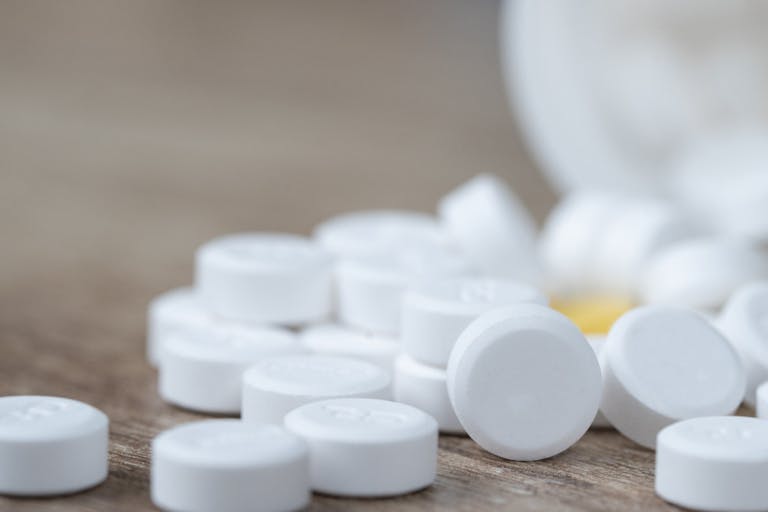
Judge rules against allowing assisted suicide tourism in New Jersey
Leslie Wolfgang
·
International·By Amanda Vicinanzo
Nova Scotia to allow self-administered assisted suicide option
“First, do no harm.” This popular principle reminds health care professionals of their duty to consider the ethical implications of what they do. But the application of this principle is nowhere to be seen in a recent announcement in Nova Scotia that those eligible for medical assistance in dying (MAID), a blanket term for assisted suicide and euthanasia, will soon be able to choose to self-administer the lethal medication — a very dangerous protocol that can go horribly wrong.
Dr. Gord Gubitz, medical lead for Nova Scotia Health’s MAID Access and Resource Team, commented in a news article that “the oral option does not always result in death.” Consequently, he notes that an IV option needs to be available as backup and the oral medication should be administered with a clinician nearby. This option will be available as soon as early 2022.
Proponents of the oral protocol for assisted suicide believe it gives individuals the autonomy to end their suffering on their own terms. Dalhousie University professor Jocelyn Downie praised the move, saying, “Ultimately it’s grounded in the twin values that should be behind our MAID decisions, which is respect for autonomy, the capacity for self-determination, for charting the course of your own life and death, and then the alleviation of suffering.”
But does the oral protocol for assisted suicide really respect the patient and offer autonomy?
Research shows that the oral protocol is writ with issues. According to a report by the Canadian Association of MAID Assessors and Providers, a review of 165 oral MAID cases in the Netherlands between 2013-2015 showed that some patients experienced retching, death took longer than 60 minutes to occur, and some patients fell asleep before being able to complete the medication. In 9% of cases, IV intervention was needed to complete the protocol.
READ: New report shows negative impacts of euthanasia on palliative care in Canada
Horror stories of assisted suicide abound. Live Action News recently shared the story 58-year-old Kurt who was diagnosed with incurable bile duct cancer. He decided to end his life and took a lethal cocktail of drugs in the presence of a nurse. His wife watched in horror as he choked and gasped after taking the drugs. He lost consciousness after about 20 minutes, but it took more than eight hours for him to die.
In Oregon, where assisted suicide has been legal since 1997, the state’s annual report has data for 827 of the 1,905 people who have died in an assisted suicide. Of these, eight regained consciousness after taking the lethal drugs, there were 33 cases of ‘difficulty ingesting’ and ‘regurgitating’ the drugs, three seizures, and 16 patients experiencing unspecified complications.
Article continues below
Dear Reader,
Have you ever wanted to share the miracle of human development with little ones? Live Action is proud to present the "Baby Olivia" board book, which presents the content of Live Action's "Baby Olivia" fetal development video in a fun, new format. It's perfect for helping little minds understand the complex and beautiful process of human development in the womb.
Receive our brand new Baby Olivia board book when you give a one-time gift of $30 or more (or begin a new monthly gift of $15 or more).
Troublingly, in March 2023, Canadians whose only medical condition is a mental illness will be eligible for MAID. Memorial University of Newfoundland medical ethics professor Daryl Pullman noted that the Canadian Parliament is on a slippery slope. Assisted suicide was once accepted by a minority and was rare, but today is becoming increasingly widespread.
“The Canadian Parliament seems more interested right now in waxing the runners on the sleigh than in actually trying to assess whether or not the hill we’re going down is pretty steep. We seem to be rushing headlong for a precipice here,” Pullman said.
He continued, “We’re medicalizing suicide in Canada, effectively, so that people who, for whatever reason, judge their life to be unacceptable they can, under this legislation, get medical assistance in ending their life and that’s a little bit disturbing.”
Pullman didn’t oppose the move to allow for the oral protocol. But he did reveal a big gap in the argument that the oral protocol gives patients more autonomy, noting that having an IV and MAID provider on standby can be viewed as “coercive.” In the end, the oral protocol is simply providing a false sense of autonomy.
Moreover, multiple studies show that people who seek assisted suicide do so not because they want a so-called “dignified” death, but because they are dealing with depression and hopelessness, and fear being a burden to their loved ones.
What’s the solution? Compassionate palliative care that respects human dignity and offers real care instead of death. Pushing MAID as the solution to end-of-life suffering sends the false message that the lives of those with a mental or terminal illness are not worth saving.
“Like” Live Action News on Facebook for more pro-life news and commentary!
Live Action News is pro-life news and commentary from a pro-life perspective.
Contact editor@liveaction.org for questions, corrections, or if you are seeking permission to reprint any Live Action News content.
Guest Articles: To submit a guest article to Live Action News, email editor@liveaction.org with an attached Word document of 800-1000 words. Please also attach any photos relevant to your submission if applicable. If your submission is accepted for publication, you will be notified within three weeks. Guest articles are not compensated (see our Open License Agreement). Thank you for your interest in Live Action News!

Leslie Wolfgang
·
International
Angeline Tan
·
International
Cassy Cooke
·
International
Cassy Cooke
·
International
Bridget Sielicki
·
International
Angeline Tan
·
Human Rights
Amanda Vicinanzo
·
Human Interest
Amanda Vicinanzo
·
International
Amanda Vicinanzo
·
Issues
Amanda Vicinanzo
·
Newsbreak
Amanda Vicinanzo
·